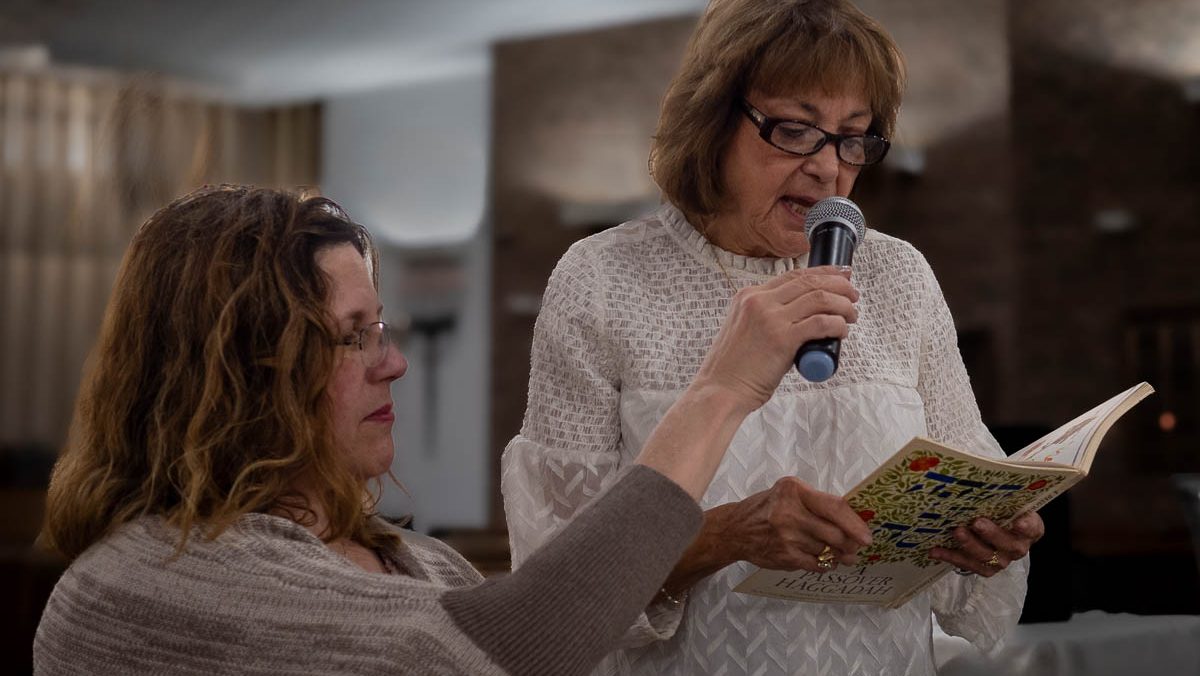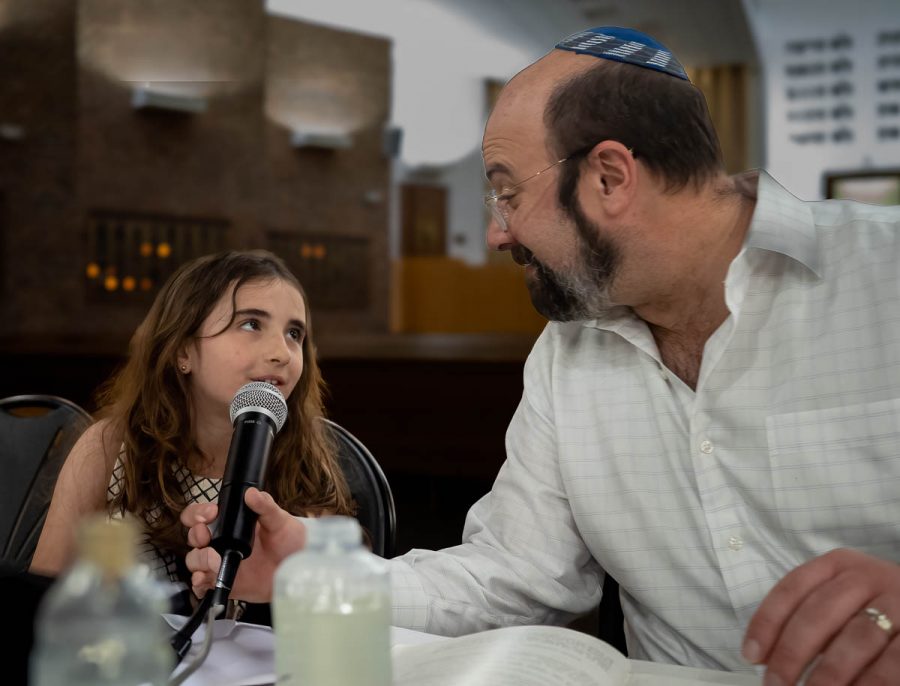The Metro: Local rabbi reflects on traditions of Passover holiday
Rabbi Matt Zerwekh from Temple Emanu-El in Oak Park joined the show this week to share more about the Jewish high holiday and its many symbols and traditions.

Members of the Jewish community gathered at Temple Emanu-El in Oak Park on Tuesday, April 23, 2024, for a Seder dinner on the second night of Passover.
Passover, one of the most important holidays in the Jewish calendar, began for many Michigan families on Monday evening.
The seven or eight-day festival commemorates the Israelites’ escape from slavery in Egypt over 3,000 years ago.
Rabbi Matt Zerwekh from Temple Emanu-El in Oak Park joined The Metro on Wednesday to share more about the Passover holiday and its many traditions.
One of the biggest ways Passover is observed in the Jewish community, Zerwekh says, is by gathering with family and friends for a Seder, or festive meal, where the food served plays a symbolic role.
“Seder is Hebrew for order, so there’s a specific order to the dinner, but it’s a service at home. We retell the story of Passover, we use foods as symbols for bondage,” Zerwekh said. “For example, we have saltwater on our tables that we dip our parsley into. The parsley is that rebirth of spring, but the saltwater is the tears that were shed by the slaves, our ancestors or those who have been in slavery or continued to be. We eat horseradish as a bitter herb, as a reminder of the bitterness of bondage. But also, the biggest thing that most non-Jewish folks will see is matzah.”

Matzah is an unleavened bread made from flour and water that is eaten during Passover. During the holiday, Zerwekh says, Jewish people refrain from eating any bread that you let rise. It’s another important symbol.
“So we use matzah as that reminder, it’s the bread of affliction,” he said. “And after about seven or eight days, it starts to feel like we’re afflicted. But it’s just that symbol throughout our week that we’re doing something significant and different.”
More than anything, Zerwekh said, he appreciates Passover for its rich, long-standing traditions.
“I experience my world through my stomach more than anything. So recipes passed down over generations, how you know, our great grandparents made a certain dish, or a brisket recipe or what have you that has been passed down that we still do today that are still very much alive. It’s just this — the food, the tradition — this is where it really becomes alive,” he said, “We’re also reminded throughout generations, especially the last three or four generations of the pain, you know, of our grandparents, my grandparents, our parents’ parents went through.”
Zerwekh said the holiday is celebrated for seven or eight days, depending on the denomination of Judaism.
More headlines from The Metro on April 24, 2024:
- The Renaissance Center has been in the news this week. General Motors announced they’ll move their headquarters to the new Hudson’s Detroit tower once construction is complete. To discuss the building’s history and future, we’re joined by Crain’s Detroit Business reporter Nick Manes.
- A nonprofit in Detroit’s Poletown East neighborhood is working to plant Detroit’s first ever forest of giant sequoia trees. Birch Kemp is the co-founder and executive director of Arboretum Detroit. He spoke with WDET’s Jenny Sherman about how the ancient trees have shown their ability to thrive in Michigan’s climate.
- The Recess Food Court opens later today and will remain open throughout the draft. It’ll feature four local restaurants with the goal of creating a communal atmosphere. Chief Operating Officer of the Michigan Black Business Alliance Kaiwan Bowman joins the show to talk about the dining hall and its relevance to the growth of Black businesses in Detroit.
- With the NFL Draft taking place this week, officials are warning people of the potential for human trafficking. WDET reporter Bre’Anna Tinsley spoke with several people about why human trafficking happens and some misconceptions about it.
Listen to The Metro weekdays from 11 a.m. to noon ET on 101.9 FM and streaming on-demand.
Trusted, accurate, up-to-date.
WDET strives to make our journalism accessible to everyone. As a public media institution, we maintain our journalistic integrity through independent support from readers like you. If you value WDET as your source of news, music and conversation, please make a gift today.
